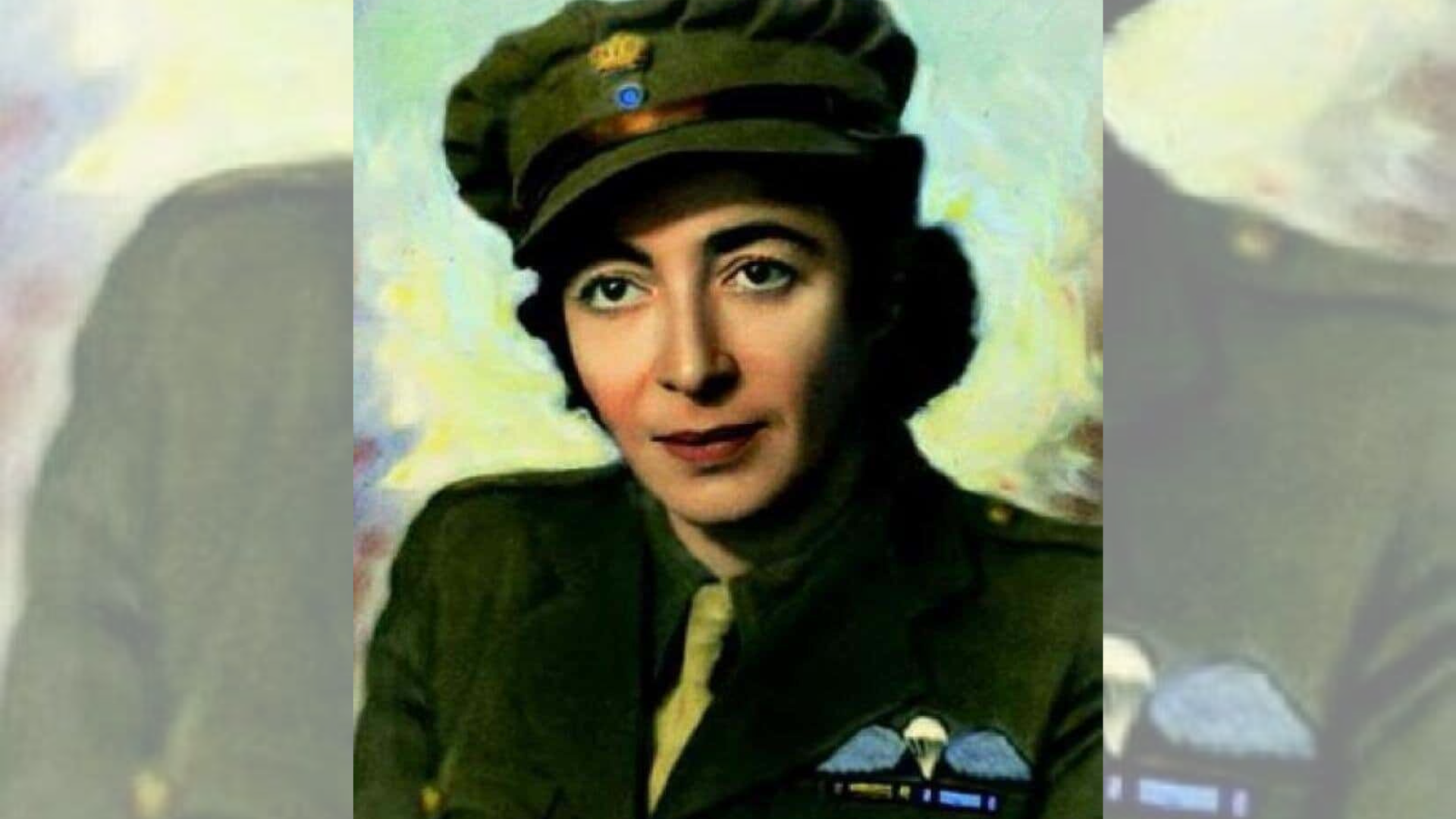Sonia Stefanidou was the daughter of Philopoimen Stefanidis, a doctor from Trebizond honoured for his voluntary service on five different fronts. Two traits that his eldest daughter Sonia inherited from him were determination and a desire to serve her country.
To get to the frontlines, Sonia trained and served as a volunteer nurse for the Red Cross. Rumour has it that, to expedite her application, she sought the intervention of government minister K. Bourboulis under the Metaxas administration.
“I considered it my duty to offer all that I could for the Sacred Struggle,” she wrote in her request to the Ministry of Economy, where she was employed, seeking permission to enlist in the military service.
She was first dispatched to Ioannina and the 1st Military Hospital of the Rear Nursing Centre.
On 20 April 1941, after the signing of the first armistice protocol, she returned to Athens. Determined to escape to the Middle East, where the exiled Greek government was based, she utilised her nursing skills by serving in military hospitals in Alexandria and Hadera, Palestine. On 8 April 1943, she requested a 20-day leave to travel to Cairo.
“I longed to serve my Greece in a more direct and effective way, as if she, bloodied, was calling me,” she wrote in her diary.
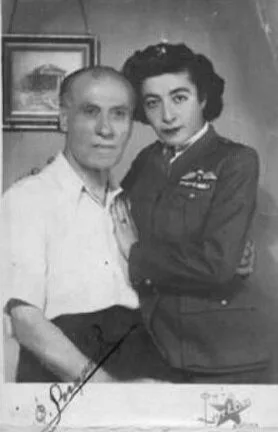
In Egypt and Palestine
In Cairo, she approached the head of the Greek Government, Emmanouil Tsouderos, asking to become a commando. A month later, she was sent to the British Secret Service ISLD (Intelligence Service Liaison Division), which dispatched her to Haifa, Palestine, for training in intelligence gathering, reporting, code usage, and signal encryption for wireless transmission.
Her parachute training took place at a RAF camp near Nazareth.
“Her performance during training was of a high standard,” her British officer trainer noted.
Her skills in the spy and paratrooper schools were exceptional, and she was also fluent in French, English, and German.
She was then sent to occupied Greece, joining British commandos along the Pindus mountain range to collect military intelligence. She encrypted the information daily and sent it to the Middle East. Her team of paratroopers, along with two mules to carry supplies, moved under cover of darkness and hid during the day. However, Sonia would often disguise herself as a peasant, cleaner, or beggar to gather intelligence from villages. She also recruited many local boys to contribute to the cause based on their skills.
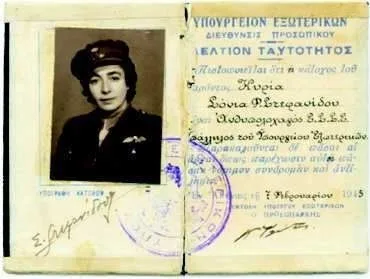
The death sentence
This secret mission lasted about two months until the team reached the Greek-Albanian border in the region of Lemos Langa. There, on 2 September 1943, Sonia and her comrades were captured by men from a nearby German outpost and sentenced to death after harsh interrogation.
A German guard, moments before the scheduled execution, freed the group, and they escaped into a dense forest. Sonia made it to the region of Neraida in Kalambaka, where there was a resistance base with both Greek and foreign contacts. These contacts had orders to return to the Middle East, and Sonia returned to Cairo. She applied and was accepted into the newly established Women’s Volunteer Military Corps, earning the rank of a military officer, equivalent to a second lieutenant.
The details of this mission remained classified, and what little we know comes from retired Lieutenant General Christos S. Fotopoulos, who gleaned his information from Sonia’s personal diary and a few remarks she made during a radio broadcast.
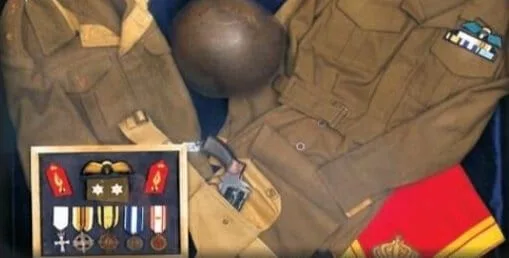
Few details have been uncovered about her mission in German-occupied Crete between January and October 1944, possibly under Tsouderos’ orders.
In Crete, she met with Manolis Bandouvas, one of the key leaders of the Greek resistance on the island.
“She may have been there as a liaison, carrying documents, verbal orders, or even money,” Lieutenant General Fotopoulos suggests. It is speculated that she participated in the abduction of German General Kreipe.
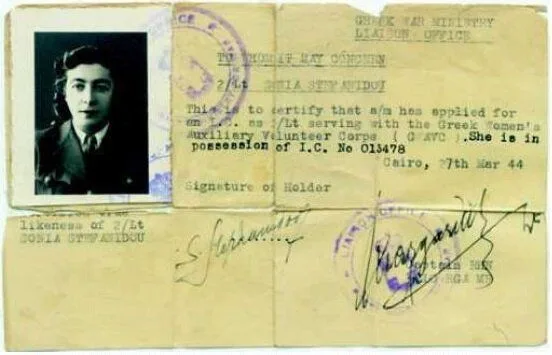
“I served in the Middle East as a commando for a special mission in Western Macedonia and Crete,” Sonia stated in 1953 in an official declaration to the Ministry of Industry.
Sonia Stefanidou had by then earned “The Parachutist’s Wings,” which she proudly wore on her uniform as a sign of a wartime jump.
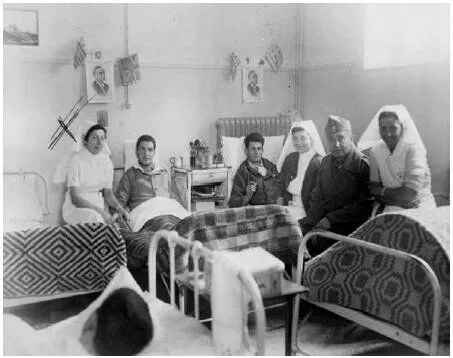
Return to Greece
Upon her return to a liberated Greece, she worked in the Protocol Department of the Ministry of Foreign Affairs. She later applied, unsuccessfully, to participate as a paratrooper in the American battles against the Japanese.
In 1967, after 40 years of service, Sonia retired, having been awarded the Gold Medal for Bravery, the Medal for Exceptional Acts, the National Resistance Medal, and the Army Service Medal for her actions between 1940 and 1968.
Sonia passed away on 22 August 1990.
“I want to be buried in my khaki military uniform with my medals. I wish for a simple burial,” she requested of her family. Her funeral took place with full honours at the First Cemetery of Athens.
